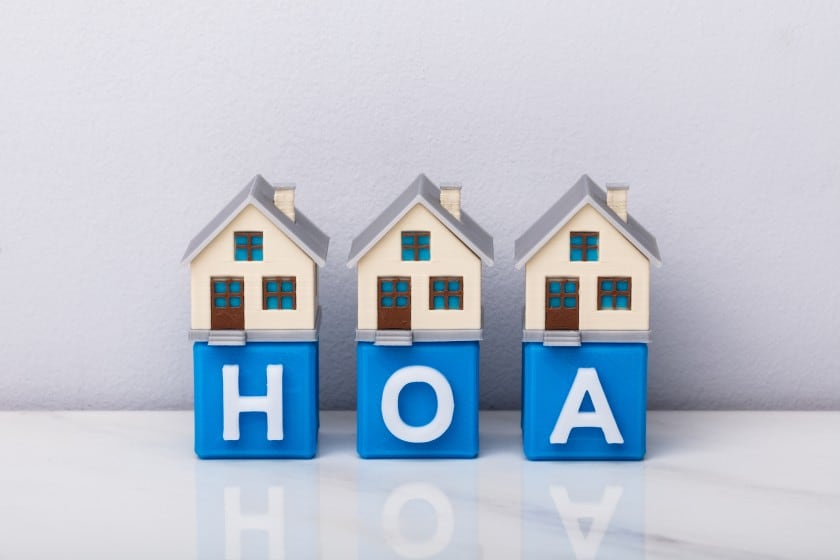How HOA Administration Promotes Communication and Dispute Resolution Amongst Homeowners
Homeowners' Associations (HOAs) offer as essential entities in cultivating interaction and solving disputes among locals. While these mechanisms are made to decrease misconceptions, the underlying dynamics of resident interactions can frequently make complex issues.
Role of HOAs in Interaction
Home Owners' Organizations (HOAs) play a vital role in facilitating interaction within property communities, acting as the key channel in between citizens and the governing body. By developing a structured framework for discussion, HOAs guarantee that homeowners' recommendations and problems are heard and addressed successfully - austin hoa management. This role is essential in promoting a feeling of neighborhood and belonging among locals, as it encourages participation and collaboration


Eventually, the performance of an HOA in communication directly affects the total complete satisfaction of homeowners. When communication is prioritized and handled successfully, it fosters a harmonious living atmosphere where citizens really feel valued and connected, leading the way for a more vivid and cohesive area.

Developed Channels for Discussion
Establishing efficient networks for dialogue is necessary for any House owners' Association (HOA) seeking to boost communication within its neighborhood. These networks work as fundamental devices that help with the exchange of details and foster a sense of belonging amongst homeowners.
One of one of the most usual methods is using e-newsletters, which provide updates on neighborhood events, upkeep timetables, and essential statements. Digital systems, such as community sites and social media sites teams, can also play a critical function in making certain residents remain educated and involved. On a regular basis arranged conferences, whether virtual or in-person, allow members to voice issues, share ideas, and go over neighborhood concerns in an organized setting.
Moreover, recommendation boxes placed tactically throughout the neighborhood can motivate locals to supply comments anonymously, promoting an environment of openness. Establishing clear lines of communication, such as devoted email addresses or hotlines for specific concerns, also empowers residents to connect conveniently.
Problem Resolution Approaches
Reliable interaction channels are essential not just for sharing information yet additionally for addressing problems that might develop within a neighborhood. Property owners' associations (HOAs) can implement numerous problem resolution methods to promote a harmonious living setting. One efficient method is the establishment of clear standards that describe acceptable actions and procedures for addressing complaints. These guidelines should be conveniently easily accessible to all locals, ensuring openness and consistency.

Furthermore, problems may benefit from an organized process for rising issues. When needed, hoas can assign a problem resolution board or involve a neutral 3rd event to facilitate conversations. This approach offers a systematic method to handle disagreements while preserving impartiality.
Eventually, reliable problem resolution approaches not just deal with concerns but additionally develop count on amongst locals, strengthening a feeling of neighborhood and shared obligation. By focusing on these methods, HOAs can add to an extra peaceful and cooperative area setting.
Mediation and Facilitation Methods
When navigating problems within a assistance, community and mediation methods can play a critical function in promoting understanding and resolution. These techniques include experienced professionals that lead conversations, making sure that all celebrations have the possibility to share their viewpoints in a positive atmosphere. Mediation concentrates on assisting contradictory parties find typical ground via negotiation, Get More Information while facilitation entails handling group characteristics to foster efficient interaction.
An efficient arbitrator creates a risk-free room for discussion, encouraging individuals to actively listen and understand with each other. This procedure typically includes reframing concerns to clear up misunderstandings and stressing common interests instead than differences. Facilitators, on the other hand, might employ strategies like conceptualizing sessions or group tasks to build relationship and improve collaboration amongst residents.
Both strategies prioritize neutrality and impartiality, permitting locals to really feel heard and valued. By using arbitration and facilitation strategies, HOA administration can encourage neighborhood participants to deal with disagreements amicably, lowering tension and promoting a sense of belonging. Eventually, these approaches add to a much healthier community environment, where problems are dealt with proactively and partnerships are strengthened with open interaction.
Benefits of Efficient Interaction
Clear communication works as the structure for successful communications within an area, significantly enhancing the general functioning of HOA administration anonymous (austin hoa management). Efficient interaction cultivates openness, which constructs trust fund amongst residents and the management team. When residents feel informed about community occasions, choices, and plans, they are most likely to engage positively and add to the community's wellness
Furthermore, clear communication decreases misconceptions and minimizes the possibility for dispute. By verbalizing expectations, responsibilities, and regulations plainly, HOAs can preemptively deal with issues prior to they intensify. Residents equipped with significant details are better placed to stick to community standards and solve disputes agreeably.
Additionally, effective interaction channels urge comments and recommendations from homeowners, equipping them to participate proactively in the decision-making process. This inclusivity not just enhances area morale yet likewise brings about more informed and representative outcomes.
Moreover, consistent updates with newsletters, meetings, and electronic platforms make sure that all community members are straightened with the HOA's vision. In summary, efficient interaction is vital for cultivating a cohesive neighborhood, advertising active involvement, and inevitably achieving an unified living setting.
Conclusion
In conclusion, effective HOA management considerably enhances communication and conflict resolution among residents. Ultimately, the promotion of reliable interaction leads to lowered misconceptions and enhanced resident fulfillment, adding to a cohesive and harmonious area atmosphere.
House Owners' Associations (HOAs) play an important function in helping with communication within residential areas, acting as the main channel between residents and the controling body.HOAs normally organize regular meetings, newsletters, and electronic systems to promote openness and maintain locals informed concerning neighborhood advancements and guidelines. These initiatives not just improve communication yet likewise empower Recommended Reading residents to involve in the decision-making process, therefore enhancing their financial investment in the neighborhood's well-being - austin hoa management. When homeowners feel informed regarding community events, decisions, and policies, they are much more most likely to engage favorably and contribute to the area's well-being
Inevitably, the promotion of efficient communication leads to minimized misunderstandings and increased resident satisfaction, adding to a unified and cohesive neighborhood setting.